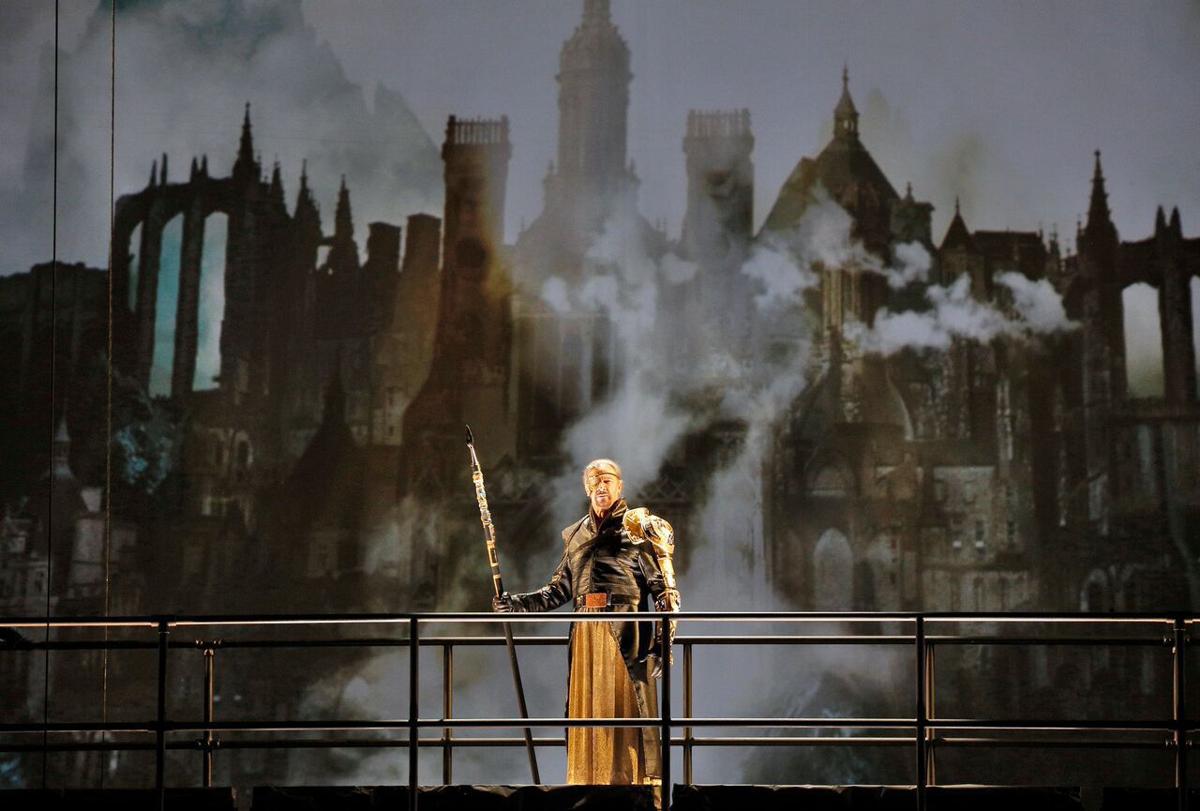The Arizona Opera received a $2 million affirmation Monday for its new programming model that will include staging new operas in small spaces in Tucson and Phoenix.
The gift came from Kay and Ron McDougall, who designated the money to create the McDougall Arizona Opera Red Series. Ron McDougall is the former CEO of Brinker International Inc. (Chili’s Grill & Bar).
The Red Series, presenting new and non-traditional operas in smaller spaces outside the company’s Tucson Music Hall and Phoenix Symphony Center home stages, launches in the fall. First up are Astor Piazzolla’s tango opera “Maria de Buenos Aires” and the jazz-inspired “Charlie Parker’s Yardbird” by Daniel Schnyder and Bridgette A. Wimberly.
The series is part of the company’s overhaul of its program model that splits the season in two series to reach more non-traditional audiences.
While the Red Series focuses on smaller, lesser-known works, the Mainstage Series in the winter dips into the classical operatic cannon of masterworks: In January/February, Arizona Opera will perform Verdi’s “La Traviata,” and next April will close the season with Mozart’s “The Marriage of Figaro.” In between, the company will mount Kevin Puts’ and Mark Campbell’s Pulitzer Prize-winning 2011 opera “Silent Night” in March as part of its inaugural Marlu Allan and Scott Stallard Modern Masterworks Series, which spotlights modern masterworks.
“Everything we are doing is (aimed at) how do we do the best work for Arizona and how do we grow the art form for Arizona,” Joseph Specter, Arizona Opera’s president and CEO, said Tuesday. “And to see that kind of investment support for that plan just shows a level of support and enthusiasm ... that says ‘hey, we have something that we hope will be special, and it’s connecting.’”
Arizona’s model follows similar moves by companies including the San Diego and Philadelphia operas as they search for ways to diversify and increase their audiences. Specter said it’s also creating “inspired programming oriented to community engagement.”
Specter admitted the bold move was not without risk; some opera purists aren’t sold on the idea of mounting little-known or new works.
But the response has so far been positive among donors and subscribers.
“In terms of sales, we’re tracking really favorably to last year, and that was not something that was a given” after splitting the season, he said. “We knew that that was a risk from people who were concerned about the new model, but, in fact, the attendance for the season ticketholders for what we projected is right in line where we thought it would be.”
This is not the largest gift Arizona Opera has received in its 47-year history, but is one of the first times the company has received such a large gift from folks who were so new to the company, Specter said. Kay McDougall joined the opera board just last year.
“What I have learned as a first-year board member is that Arizona Opera is on a mission to bring something thrilling to the state, and to become one of the most exciting opera companies in the country,” she said in a written statement. “We are honored to help bring the RED Series to life.”
“We are excited by Arizona Opera’s expansive vision and leadership, and believe in the potential of the RED Series to help build stronger, more connected communities through the art form of opera,” added her husband.





